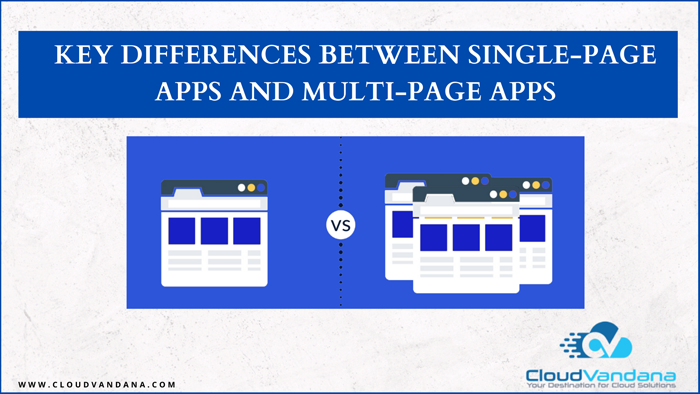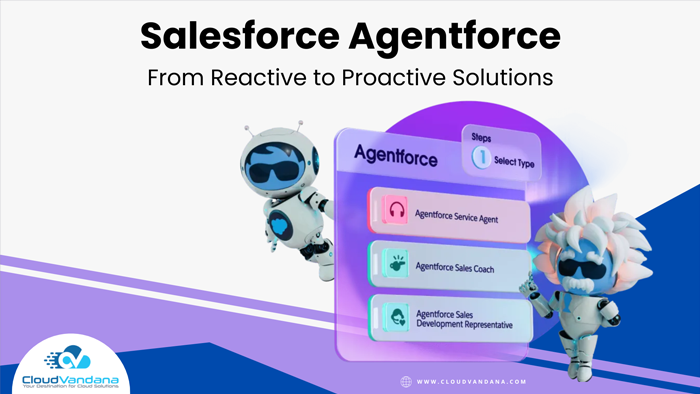Single-page apps and multi-page apps are two methods for developing web apps. Opinions vary, but both ways are effective for web development.
So, today, in this blog, CloudVandana will provide a detailed guide on the critical differences between single-page and multi-page apps.
Single-Page Applications
A single-page web application relies on client-side rendering instead of loading resources from the server. Thus, single-page apps are easy to build and maintain. They are also made, maintained, and scaled differently from the traditional web application development model.
Advantages And Disadvantages Of Single-Page Apps
Among various advantages, we are stating two essential advantages and disadvantages here.
Advantages
1. Easier Set up
A development team can select the much easier way of setting up and debugging the application in the browser in this application. A SPA consists of single CSS, HTML, and JavaScript bundles, and after the loading, the apps get ready for use. The development team then installs and configures a web server to host the app, and then the team can access it. It is favorable to software developers and potential clients.
2. Saved Bandwidth
Single-page applications (SPAs) connect to the server in small batches with simpler operations. SPAs request JSON data to update one needed property on the user’s screen, freeing up bandwidth and reducing network traffic overall.
Disadvantages
1. Search Engine Optimization
One of the critical challenges of this application is the difficulty of optimizing a web application for search engines. The links are generally hard to get indexed, so SEO with this application is quite complicated.
2. Performance Issues
The philosophy behind single-page applications suggests that when users’ experience with the website is enhanced, they feel comfortable interacting. Though SPA is fast, there are still some speed and performance issues.
Besides, SPAs require more significant effort and coding knowledge to create. So, they are difficult to maintain and find coding errors.
Great examples of some of the single-page applications are Google web services, Trello, Twitter, etc.
Multi-Page Application
A multi-page application is a traditional web page application that consists of several pages and reloads the whole page every time a user forms a new request. Multi-page applications are perfect for content and feature-rich web applications with complex service offerings that need to be further scaled over time. Multi-page applications include LAMP, MEAN, and .NET for the backend and HTML/CSS, JavaScript, TypeScript, JavaScript frameworks, package managers, Ajax, and RxJS for the front end.
Advantages And Disadvantages Of Multi-Page Apps
Multi-page applications have been on the market longer than single-page apps. So, let’s first examine the advantages.
Advantages
1. Scalability
Multi-page apps (MPAs) allow the creation of as many pages as the site needs. With this architecture, the HTML DOM has a nearly unlimited capacity without any restrictions. On the other hand, most MPAs are built as a dynamically scaling system that needs to deal with a lot of services and products.
2. Easier Optimization with search engines
These applications are easily optimized with search engines like Google. Search engines can easily crawl these pages without any extra effort from the developers. As multi-page apps can be optimized, they could quickly appear in the search results.
Disadvantages of Multi-Page Apps
Besides many benefits, there are a few flaws in the apps. The following are two key disadvantages of this application.
Disadvantages
1. Slow Performance
MPA performance requires more effort to optimize. As a result, most companies select multi-page applications as they need to deal with lots of data and content and offer various services and products. However, narrow businesses that do not process much content are recommended to go for single-page applications.
2. Lack Of Flexibility
Single-page apps are well known for their flexible UI feature. On the other hand, multi-page apps cannot have too many complicated mechanisms to adapt the interface according to each page’s content and each user’s device. So, the interface of a multi-page application will not be as flexible as that of a single-page application. In addition, traditional MPA contains more UI levels, which limits the ability to adapt the interface.
So, from the discussion, we can say that both applications are practical, but proper expertise is needed to use them wisely.
Are you running short of time and resources to hire an expert team of in-house developers? CloudVandana has a vast talent pool of talented remote developers from which organizations can select the best-suited team for their organization. Call us today and get the best software developers on demand. Call Now.










